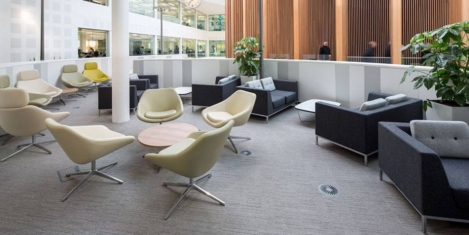October 13, 2016
London needs to adapt to the changing world of work, claims think tank 0
 Think Tank New London Architecture (NLA) which creates a forum for debate on the built environment, has launched its findings and recommendations from its landmark WRK / LDN Insight study on work and workplaces in London. NLA calls on central government, the Mayor of London and other stakeholders in the capital to act to maintain the capital’s position as a preeminent commercial centre. The report claims that, as the digital economy continues to expand, new suppliers of workspace are rapidly emerging – from co-working providers to ‘fab labs’, makerspaces, incubators and innovation centres. The insight study concludes that the affordable business space that currently supports these industries is at risk. London needs new innovative mixed-use models of city planning to support these changes and adapt to the changing world of work.
Think Tank New London Architecture (NLA) which creates a forum for debate on the built environment, has launched its findings and recommendations from its landmark WRK / LDN Insight study on work and workplaces in London. NLA calls on central government, the Mayor of London and other stakeholders in the capital to act to maintain the capital’s position as a preeminent commercial centre. The report claims that, as the digital economy continues to expand, new suppliers of workspace are rapidly emerging – from co-working providers to ‘fab labs’, makerspaces, incubators and innovation centres. The insight study concludes that the affordable business space that currently supports these industries is at risk. London needs new innovative mixed-use models of city planning to support these changes and adapt to the changing world of work.



































